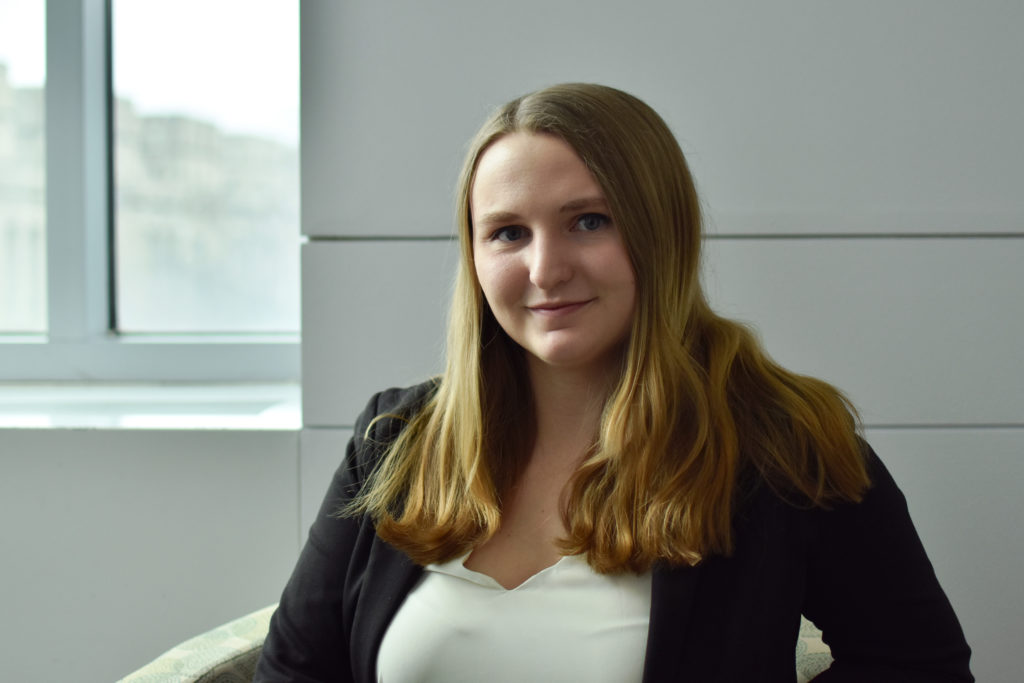Officials in the Elliott School of International Affairs are revamping a program that allows students to conduct professional research.
Elliott School officials overhauled the Undergraduate Research Scholars Program – a one-year initiative allowing students to conduct research with professors – this semester to last two years. Officials and students said the updated initiative, renamed the Dean’s Scholars Program, will give international affairs students more time, funds and support needed to produce in-depth research projects.
The program will allow students to conduct research on an international affairs topic of their choice and select a faculty mentor to assist in gathering information about the subject, according to the program’s website. Applications for the program, which were open to sophomores with a GPA of 3.5 or above, closed Friday.
Once students involved in the program enter their senior year, they will have the opportunity to present their research at international affairs conferences and submit their findings to relevant peer-reviewed journals, according to the website.
University spokesman Jason Shevrin said faculty and staff worked together this year to redesign the program to better align with Dean Reuben Brigety’s goals to progress the school’s Leadership, Ethics and Practice Initiative, which was launched last year.
Shevrin said the program is now “more flexible” and allows students to study abroad and have more time to develop their research projects. He added that students in the program are expected to attend Elliott School events throughout the year.
“Creating these opportunities directly serves to fulfill our mission of creating the next generation of global leaders,” he said in an email.
Shevrin said the program’s new full-time director will teach research seminars, oversee research methods training and support experiential learning programs, like summer and short-term abroad research opportunities.
“The goal of Dean’s Scholars is to help some of our most talented undergraduate students succeed in highly competitive grant applications and get accepted into exceptional graduate programs right after graduation,” he said.
Claudine Kuradusenge-McLeod, the director of the program, did not return multiple requests for comment.
Elliott School students involved in the Undergraduate Research Scholars Program said restructuring the initiative and increasing its length from one year to two will allow future students to learn how to conduct and complete more in-depth research.
Ambika Nair, a senior who conducted research on American and Chinese energy investments in Ghana this academic year, said the two-year program will offer students more time to develop comprehensive projects. She said her thesis, which is about 50 pages long, would likely be closer to 100 pages if she had had two years to work on it.
“There’s so much more I know I could do with my topic,” Nair said. “It’s just that I don’t have the time or the funds with just one year to be able to do it.”
Niveditha Senthilvel, a senior who conducted research on a 1943 famine in British India this academic year, said the new two-year format is a “great idea.” Senthilvel, who began her research on the subject before applying to the program as a junior, said she spoke to students who began the one-year program last semester who felt that they did not have enough time to explore every aspect of their topic because the program was too short.
“I think that really gives students valid time to familiarize themselves with the subject, and it really allows them to do a deep-dive in terms of understanding,” she said.
Grace Headinger, a senior, conducted her yearlong research abroad at the University of Sydney, studying the end of a nuclear weapons alliance between the United States, Australia and New Zealand in the 1980s. The current setup of the Undergraduate Research Scholars Program does not permit students to study abroad in the short-term but allows students to travel for their research.
Headinger said the expansion of the program will give students more flexibility to change their research topics if they hit a roadblock or are interested in a different subject.
“With an additional year, new students are building their research design through the program, whereas during our year and previous years, you were expected to enter in with a fleshed-out research proposal,” Headinger said.





